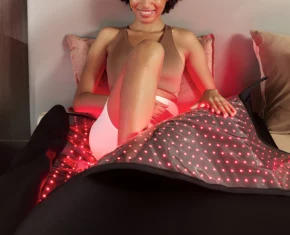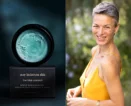Forget florals – we want to learn how to arrange succulents. Whether they’re adorning a wall, lining a pathway, or brightening up a windowsill, trendy-yet-classy succulents add a dash of personality to any space. Plus, you don’t need to be a gardenista to master the art of succulent keeping: the fact that they’re low-maintenance is an added bonus! Darling Magazine recently interviewed succulent expert Tamar Sahakian of Searoon Succulents about what inspires her most about working with these trend-setting botanical beauties…
Succulents have been ruling the trends in the plant world for their vibrancy, sustainability and distinctive shapes. That’s why Tamar Sahakian of Searoon Succulents finds beauty in cultivating her own and constructing unique plant installations, inspired by the challenge of repurposing old vessels with new life. We had the opportunity to ask Tamar more about her artistry and process. Read on below to learn the story:
Darling Magazine: Tell us about Searoon Succulents.
Tamar Sahakian: I had a group of friends over for dinner and we were playing with names for my company. At first we were set on Sahakullents, which is a combo of my last name and the word succulents. I found it to be too silly and none of us could say it without laughing.
My middle name is Searoon, it is an Armenian word that means beautiful. It is a sweet word that is used to describe many things in a loving way. I also like the way the word looks. My parents actually spell the English translation incorrectly, it should be spelled Sirun when translated to English. I love how mine is spelled, incorporating the ‘sea’ in the word. So we all decided that would be a good company name: sea, beauty and plants all mixed in one.
DM: What makes succulents the most fun or interesting to work with? How do they lend themselves to creativity in a way that other plants don’t?
TS: I love succulents because they are so forgiving, tough and beautiful at the same time! First of all they are so resilient, they can survive in such a wide range of places and off so little. Although they are part of the cactus family their characteristics are diverse. I love propagating my own succulents. I met an old woman on a walk one day tending to her sidewalk succulent garden. I loved her space and asked her where she got her plants. She told me she goes to the “midnight nursery” and started cracking up. I realized that was her driving around at night taking clippings from around town. I loved it and followed suit shortly after.
That is the beauty of succulents. They are easily shared, you can pick a piece of one plant and it will grow and become yours to share. I love creating my “babies”, propagating my own succulents. If you remove the leaves from one and just throw them on some soil, new little buds will start to grow. They grow from themselves; its really amazing and their roots are usually hot pink – so fun.
I love working with succulents because they can be manipulated and roughed around and still look good. When making a piece, I like to change my mind, play with colors and textures. The vessels usually lend me inspiration of color and texture, but I have to execute my vision fully before I am satisfied. I tend to move the plants around a lot looking back, walking away and changing them again before I am satisfied. I spend every morning looking at my breeding grounds and pieces and will move around plants long after they have been complete. Months after making finished product, I can go in, tear a plant out and put a replacement. I feel the creativity is so continuous with them due to their survival nature.
DM: Where do you draw your inspiration from? Do you collaborate with other artists on your installations?
TS: I draw my inspiration from many things. I mean, the vessels are inspiring themselves. They have certain colors and feels to them that I like to fulfill. I feel as though their shapes really inspire my work. Nature inspires me. I collaborate with and discuss my work with a friend, Billy Dole, who is my plant master. He tells me what will work together and how the plants will grow.
I try to be more conscious of what types of succulents I put in the pieces, how they will grow and not just how they look. I like to think of my work in a year and make sure I use plants that will hold the pieces character still in that time. Some plants grow up, some grow wide, it is important to see their future when installing them. I call them friends; I try to match succulent friends in a pretty way.
I also collaborate with my buddy, Freeman. He’s an all around crafter and artist, he taught me how to make my first frame and helps me keep my sculptures structurally sound.
To read the rest of the interview, visit Darling Magazine by clicking through here!











